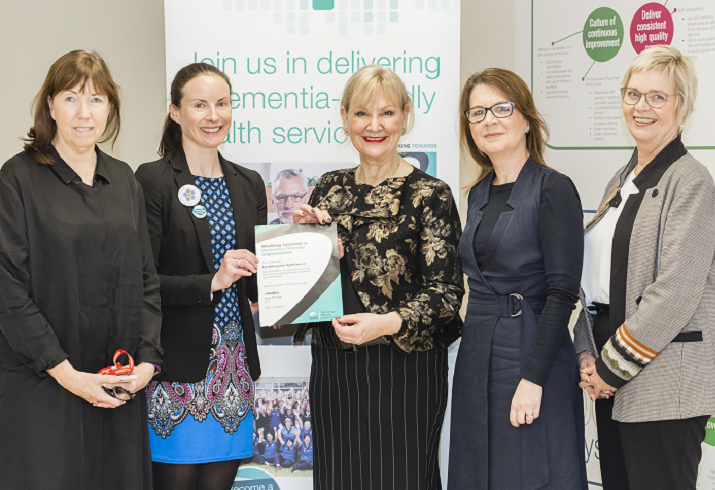East Metropolitan Health Service dementia-friendly plans recognised by Dementia Australia

EMHS has officially been recognised by Dementia Australia as the first metropolitan health service in the country to be a ‘Working Towards Dementia-Friendly Organisation’, a demonstration of our commitment to realising better health outcomes for dementia and delirium patients.
Dementia Australia uses the term ‘ working towards’ to emphasise that becoming dementia-friendly is an continual process, one that requires consistent improvement and feedback from people living with dementia, their families and carers. A dementia-friendly health service is one that reviews and improves standards of care on an ongoing basis, and ensures that the services and built environments are accessible to people living with dementia.
In achieving this recognition, EMHS adopted a number of positive changes led by Clinical Specialist in Delirium and Dementia, Ellie Newman. Focus groups have been developed with previous patients who live with dementia and their carers, to gain insights into lived-experiences of navigating hospital services. Clinical and non-clinical staff have undergone dementia-awareness training, including pastoral care workers and ‘Forget Me Not’ volunteers who directly support patients.
Dementia Australia CEO Maree McCabe commented that “East Metropolitan Health Service has set the bar high for other organisations – not just health services – in the way they have allocated resources to creating a more inclusive and accepting environment for people living with dementia who access their services.”
An integral aspect of our health service’s commitment to creating better health outcomes for people living with dementia is realised through the Dementia Change Champions. They have completed training through Alzheimer’s Australia WA to develop knowledge, skills and resources in caring for patients with dementia and delirium.
The prevalence of dementia continues to rise, with over 41,600 people living with the condition in Western Australia, with three times as many people involved in their care. Accessing hospital services is particularly challenging for people living with dementia and they are twice as likely to experience adverse events such as falls or pressure injuries while in hospital compared, to patients without dementia.
Dementia has a serious impact on our communities, and the need for health services and organisations to adopt a dementia-friendly ethos is paramount.
Clinical Specialist in Delirium and Dementia, Ellie Newman commented “the way we interact and communicate with people who are living with dementia has a significant influence on their day-to-day lives, and we need to continue to ensure that we create a safe and inclusive environment.”

